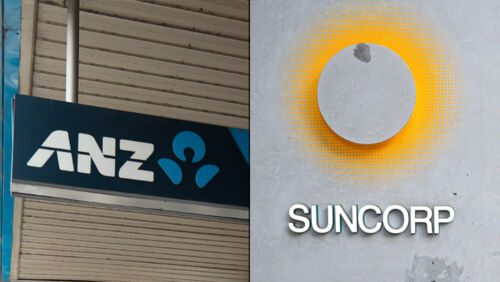Why you can't withdraw a term deposit in cash
By Effie Zahos
You might think that if you put cash into your bank you could ask for cash if you wanted to take it out. Not so, according to one Money reader.
"It was explained that this could not be done, being the bank's policy," says Jane. "I answered it was outrageous that I could put cash in but could not take cash out and was charged $10 for the privilege of having a piece of bank paper."
The bank, says Jane, insisted she had to take her money in the form of a bank cheque, costing her the $10.
Jane invested $15,000 in a term deposit with the Bank of Queensland. When it matured she wanted to withdraw her money in cash because the Commonwealth Bank, just down the street, offered a better rate.
Many term deposit holders might find themselves in such a situation right now.
As institutions continue to find it difficult to raise cheap funding for the home loans they rely on as their deposit base.
As a result we are seeing some great returns on term deposits. But the best rates will vary among different institutions so investors have to swap and change if they want to continue earning the higher rates.
While $10 may not sound like a lot, it does mean that interest earned in the first four days on a $15,000 term deposit at, say 6.5 percent, is interest lost because you'll need that money to pay for a bank cheque when you want to take it out again.
According to financial analyst Peter Arnold of Canstar Cannex, you're more likely to find a credit union or building society offering free bank cheques at maturity of a term deposit than you are from a bank.
The good news for Jane is that by speaking up she avoided the $10 bank fee because the Bank of Queensland was willing to match their rival's higher rate.
"To save further palaver I rolled the money over for a further eight months with them."
However, Jane's gripe still is: "Can I insist on having my withdrawal in cash?"
According to BOQ the answer is yes - they simply require advance notice so cash is on hand. And they ask that the customer sign an indemnity.
"We need the customer to sign an indemnity and acknowledgement, given the potential issues, including personal security, with carrying around large amounts of cash," says a spokesperson for the bank.
This would be standard for most institutions, but there are other ways you can avoid bank cheque fees, which can be as high as $20.
These include asking the institution which has your matured term deposit to give you a free direct credit to your new institution.
In general this needs to be advised a couple of days before maturity to avoid further fees.
It's really important that you know when your term deposit matures and give instructions well before this date.
Not only can this potentially save you fees, you can avoid the whole issue of banks and other institutions engaging in dual pricing - rolling your investments over to a lower rate term deposit when it expires.
ASIC has found that institutions are advertising high rates on some of their term deposits and maintaining low rates on others.
When term deposits mature, they're automatically rolled into the same term unless you direct otherwise.
The problem here is the rate will more than likely be very different to the one you locked in. Even if you're happy for it to be reinvested for the same term, it's in your interest to shop around.
If you do happen to roll into the same term but at a lower rate, you can break the fixed contract if you're willing to sacrifice some of the interest earned. While this may not sound very good, it may be worthwhile, especially if the deal you want is a market leading rate.
Just be aware though that some institutions sacrifice up to half the interest or 1% to 3% off the headline rate. Do your sums first before you jump ship.
For the latest term deposit deals, visit ratecity.com.au, canstarcannex.com.au, infochoice.com.au and termdeposit.com.au.
Get stories like this in our newsletters.



